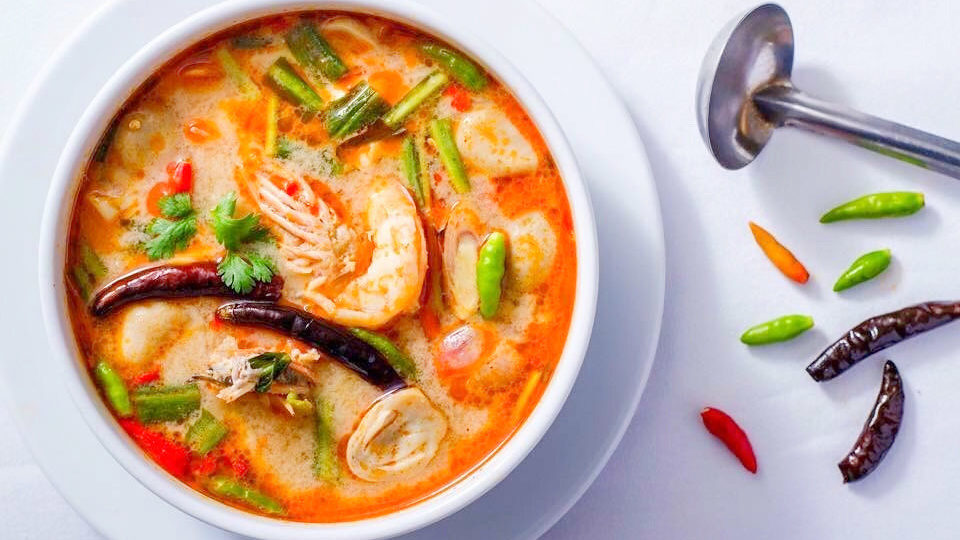Thai may not be a language of much relevance outside the kingdom, but there are three words on lips the world over: tom yum goong.
Having won UNESCO recognition for its masked dance and traditional massage, Thailand wants the kingdom’s most iconic dish to be designated as cultural heritage that is intangible; that is, a thing that can’t be put in a glass case or charged admission to visit.
The cabinet yesterday approved a Culture Ministry proposal to nominate the dish; a bowl of cooked shrimp swimming in spicy, sour and aromatic soup; to UNESCO for consideration in a process that takes at least two years.
Backing the idea, government spokesperson Traisulee Traisoranakul said the classic spicy shrimp and lemongrass soup reflects the “simplicity” of the Thai way of life and culinary culture of communities along waterways such as rivers and canals.
An interesting argument given the government’s hard push to evict riparian communities across Bangkok and nationwide since coming to power in 2014. But maybe that was just a long game to winning soup recognition, as the second UNESCO criteria for something to qualify is that it may not survive and is “in urgent need of safeguarding.”
March 31 is UNESCO’s deadline for nominations, which then wend through a deliberative process before being evaluated for committee consideration – a process which, clocking in at two years, exemplifies peak U.N. efficiency.
In theory, designation is meant to save unique forms of cultural expression from extinction. In practice, governments are motivated to claim ownership of things as economic, social or political calculations, such as when UNESCO had to split the difference on khon dance by awarding it to both Thailand and Cambodia, despite its historic origins in the latter.
Culture Minister Ittipol Khumpluem said he was confident tom yum goong would make the prestigious list, given its immense fame around the world with recipes and cooking techniques handed down through generations.
Ittipol was also hopeful it would be an economic boost, saying a UNESCO listing would improve the reputation of Thai cuisine and bring opportunities and income to the food industry.
Khon and massage were named intangible Thai heritage in 2018 and 2019, respectively. Nora, a type of dance drama common in the south, was submitted two years ago and is expected to be adjudicated later this year. The Songkran festival has also been nominated but remains on UNESCO’s backburner for now.
Related
Sabai Sabai! Thai massage recognized as ‘cultural heritage’ by UNESCO




